No products in the cart.
Films on Biodiversity, Ecology, and Forest
This collection of films explores the essential relationship between humans, biodiversity, and the natural ecosystems that support life on Earth. Each film offers a unique narrative on the importance of preserving biodiversity, the role of indigenous cultures in protecting the environment, and the ongoing threats posed to our planet’s fragile ecosystems. By addressing key environmental themes, these films emphasize the urgent need for conservation efforts, with a particular focus on animals, rainforests and other critical habitats.
1. Baraka (1992)
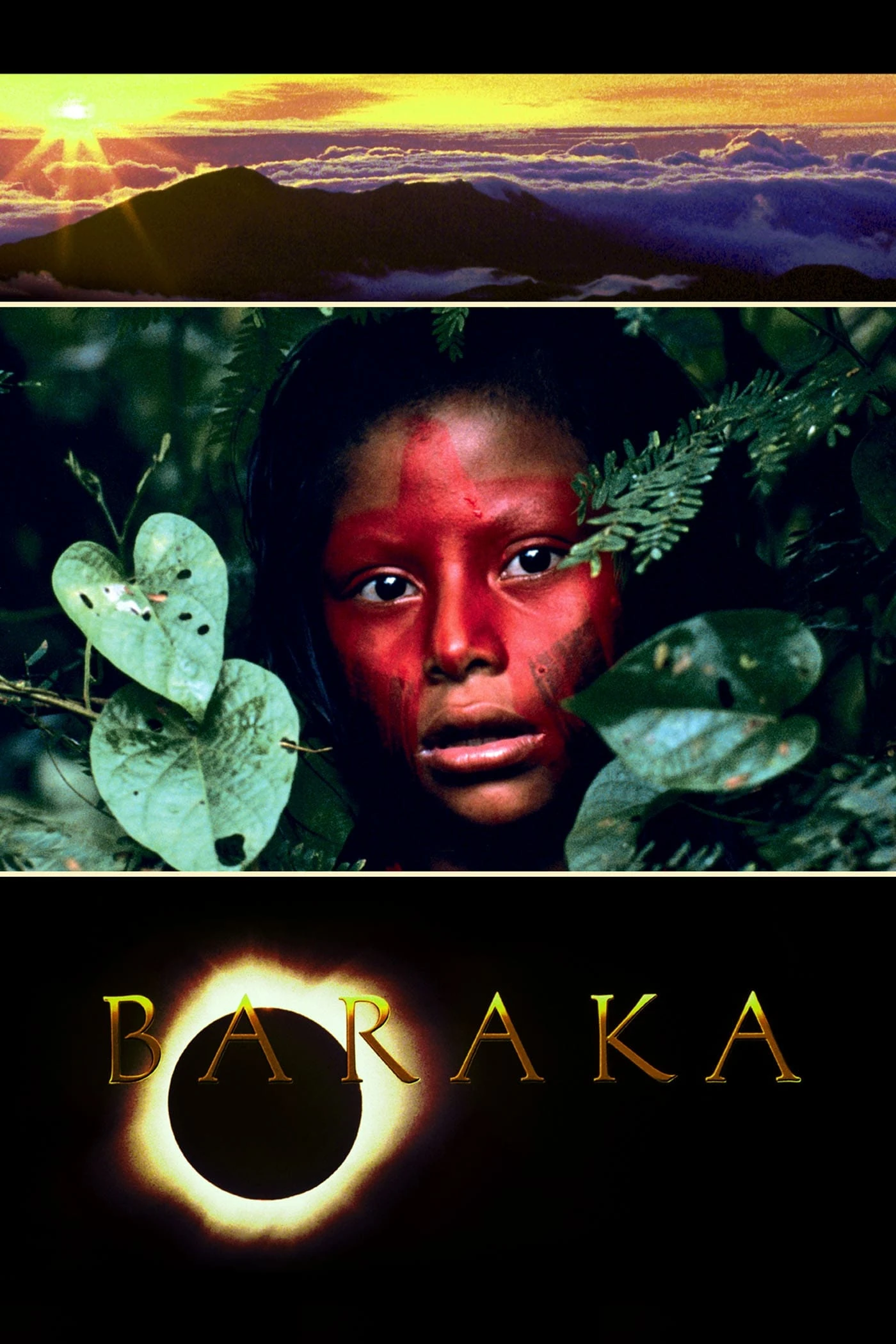
Baraka is a visually striking documentary that presents a wordless exploration of humanity’s complex relationship with nature and culture. Filmed across 24 countries, it captures breathtaking imagery of natural landscapes, religious rituals, and everyday human life, weaving together an awe-inspiring reflection on the interconnectedness of all living things.
The film avoids conventional storytelling, opting instead for a meditative approach where imagery and music guide the audience. It highlights the beauty of biodiversity without directly addressing environmental degradation, but the contrasting scenes of untouched nature and human industrial impact leave a lasting impression on viewers, encouraging them to reflect on humanity’s role in preserving the planet’s ecosystems.
Despite its lack of dialogue, Baraka remains a powerful statement about the need for global environmental consciousness. It serves as a reminder that biodiversity, cultural heritage, and natural landscapes are deeply intertwined and deserve protection from the forces of modernization and exploitation.
Keywords: biodiversity, nature, ecosystems, global cultures View on IMDb | Watch the trailer2. Before the Flood (2016)
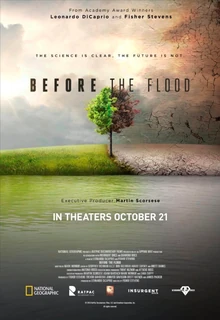
Before the Flood is a documentary produced and narrated by Leonardo DiCaprio that examines the critical issue of human action and its impact on biodiversity. The film follows DiCaprio as he travels to various parts of the world, meeting with scientists, activists, and world leaders to discuss the causes and consequences of global warming.
Throughout the documentary, Before the Flood underscores the importance of preserving ecosystems that are essential to mitigating human action, such as forests and oceans. It also addresses the role of corporate and political forces in exacerbating environmental degradation and highlights the necessity of immediate global action to reduce carbon emissions.
The film provides a comprehensive overview of the climate crisis, offering both alarming statistics and hopeful solutions. It challenges viewers to consider their own role in protecting the planet’s biodiversity and emphasizes that the future of the planet depends on collective action.
Keywords: biodiversity, ecosystems, environmentalism View on IMDb | Watch the trailer3. Earthlings (2005)
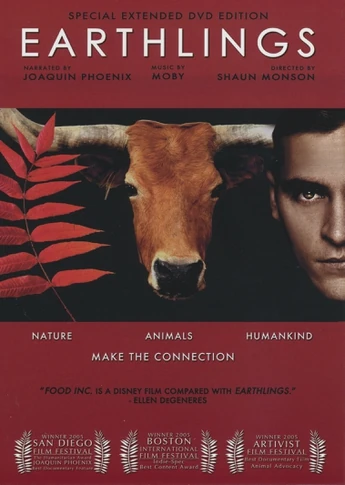
Earthlings, directed by Shaun Monson, is a hard-hitting documentary that uncovers the many ways humans exploit animals across various industries. The film is narrated by Joaquin Phoenix and uses hidden camera footage to expose the cruel realities of industries such as factory farming, leather and fur trades, entertainment, and medical experimentation. While the film focuses on animal rights, its themes of environmental degradation and biodiversity loss are deeply intertwined.
The film makes a powerful case for the ethical treatment of animals and draws connections between humanity’s exploitation of animals and the larger environmental consequences of these industries. It emphasizes the role of industrial practices in contributing to habitat destruction, and the loss of biodiversity, making it a significant film in the broader conversation about ecological sustainability and ethical living.
Earthlings is not an easy film to watch, but it is a crucial one for anyone concerned about the environmental and ethical implications of human consumption habits. It urges viewers to reflect on their personal choices and challenges the belief that humanity stands apart from the rest of the natural world. The film’s message is clear: respecting animals is not only a moral obligation but also a necessity for preserving the planet’s ecosystems.
Keywords: animal rights, biodiversity, environmentalism, ethical living View on IMDb | Watch the trailer4. El Abrazo de la Serpiente (2015)
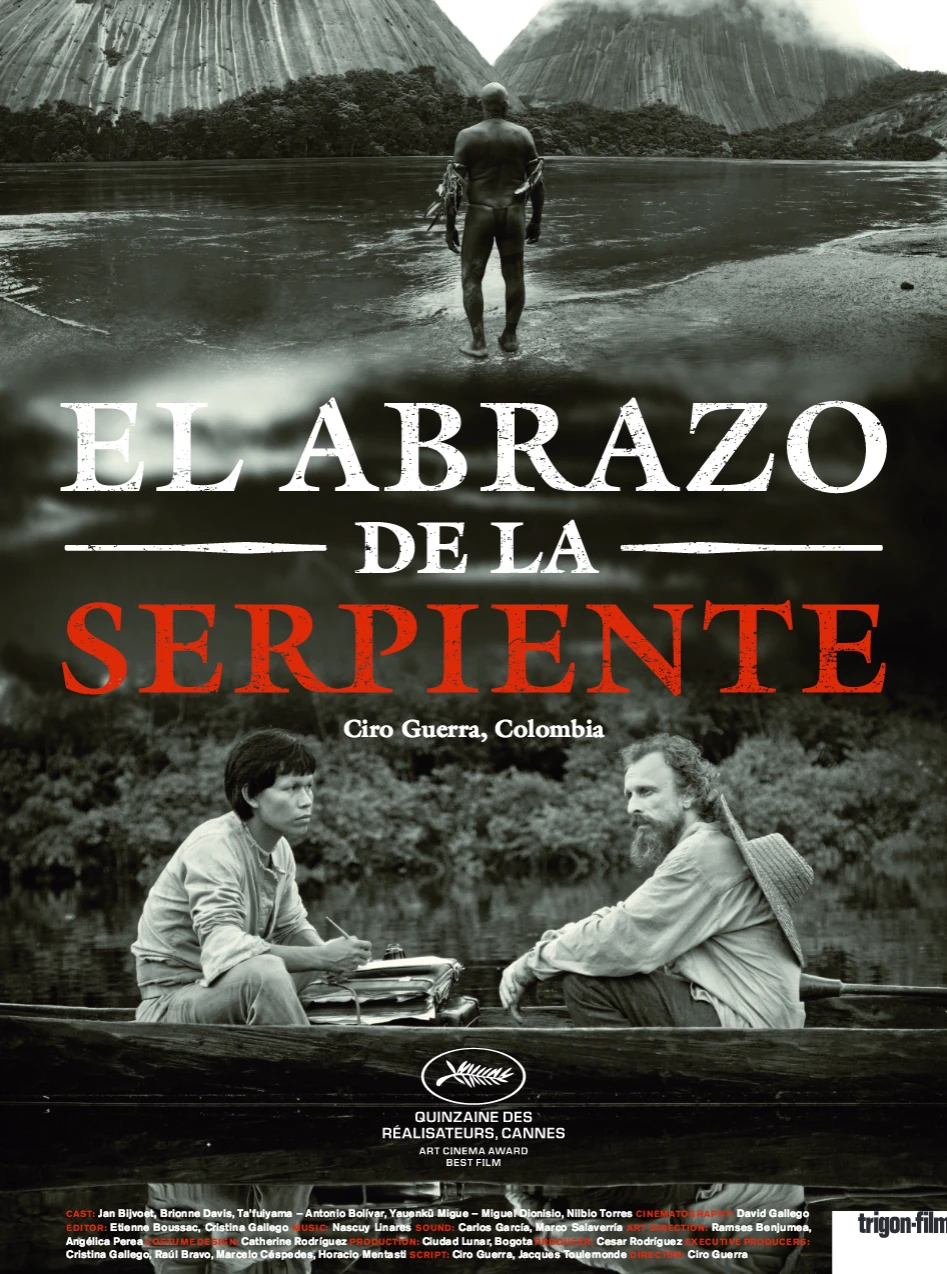
El Abrazo de la Serpiente is a profound cinematic exploration of the Amazon rainforest and the indigenous cultures that have called it home for centuries. Directed by Ciro Guerra, the film follows two parallel journeys—one in 1909 and the other in the 1940s—as two scientists seek the guidance of a native shaman, Karamakate, to explore the region’s botanical wealth. These journeys uncover not only the natural riches of the Amazon but also the spiritual knowledge and cultural traditions of its indigenous people.
The film is deeply rooted in themes of colonialism, cultural destruction, and the loss of biodiversity. It vividly portrays how the expansion of Western civilization and industrialization threatens both the environment and the people who have lived in harmony with nature for generations. Through the shaman’s eyes, viewers witness the destruction of sacred lands, the exploitation of natural resources, and the collapse of ecological balance.
El Abrazo de la Serpiente is not just a film about the Amazon; it is a meditation on the broader relationship between humanity and the natural world. It asks whether knowledge, both indigenous and scientific, can coexist to protect and preserve biodiversity. The film’s hauntingly beautiful visuals and evocative narrative challenge viewers to consider the consequences of human impact on the planet’s most biodiverse ecosystems.
Keywords: biodiversity, Amazon rainforest, indigenous cultures, ecosystems View on IMDb | Watch the trailer5. Home (2009)

Directed by Yann Arthus-Bertrand, Home is a visually stunning documentary that provides a global overview of the planet’s ecosystems and the delicate balance that sustains life. Shot entirely from the air, the film offers breathtaking views of Earth’s landscapes, from forests and oceans to urban areas, highlighting the impact of human activity on the environment.
Home emphasizes the interconnectedness of all life forms and ecosystems, illustrating how the degradation of one part of the planet can have far-reaching consequences. It presents a compelling case for immediate action to address deforestation, and the loss of biodiversity, urging viewers to consider the long-term sustainability of human activity.
The film’s striking visuals are accompanied by a powerful narrative that stresses the urgency of protecting the planet’s remaining natural resources. Home is both a celebration of Earth’s beauty and a stark reminder of the threats it faces, making it a must-see for anyone concerned about the future of the planet.
Keywords: biodiversity, ecosystems, nature View on IMDb | Watch the trailer6. Honeyland (2019)
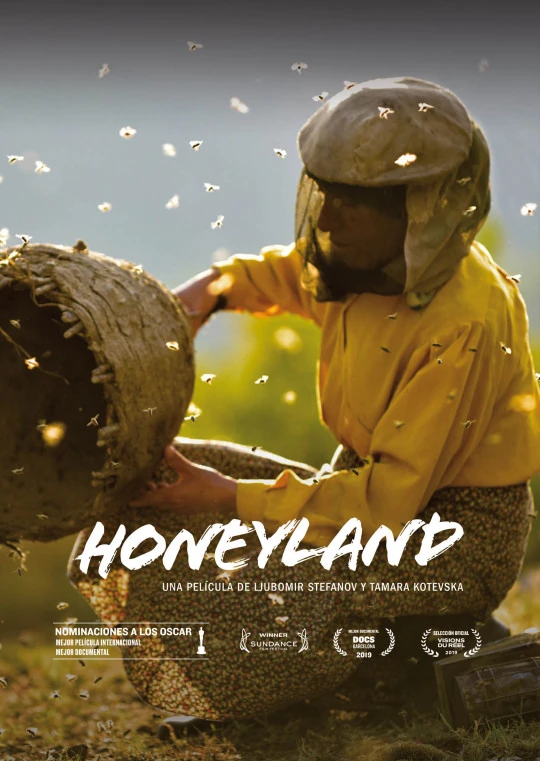
Honeyland is a deeply personal documentary that follows the life of Hatidze Muratova, a traditional beekeeper living in rural Macedonia. As one of the last in her line of wild beekeepers, Hatidze maintains a delicate balance with nature, harvesting honey using sustainable methods that respect the bees and their environment. This balance is threatened when a new family arrives in her remote village and begins exploiting the bees for profit.
The film serves as a metaphor for the broader environmental issues facing our planet, particularly the struggle between traditional knowledge, sustainability, and the pressures of modern capitalism. It highlights the intricate relationship between biodiversity, ecosystems, and human intervention. The disruption caused by unsustainable practices in the film mirrors the challenges faced globally as industrialized agriculture encroaches on natural ecosystems.
Through its poignant narrative and stunning cinematography, Honeyland raises important questions about how humanity interacts with nature and the consequences of prioritizing short-term gains over long-term sustainability. It also underscores the role of traditional ecological knowledge in preserving biodiversity and maintaining the health of ecosystems.
Keywords: biodiversity, ecosystems, sustainability, beekeeping View on IMDb | Watch the trailer7. Into the Wild (2007)
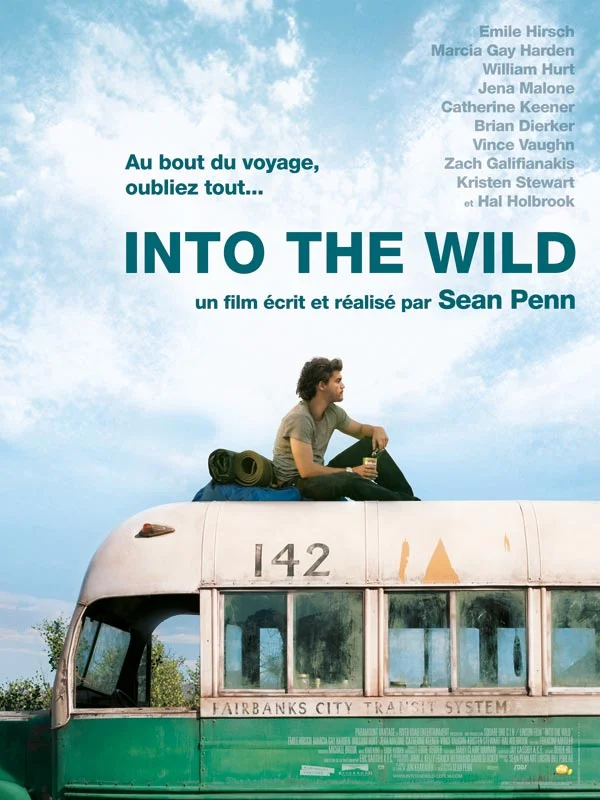
Into the Wild, directed by Sean Penn, tells the true story of Christopher McCandless, a young man who leaves behind his conventional life to embark on a journey of self-discovery in the wilderness. Based on Jon Krakauer’s non-fiction book, the film examines the human desire to reconnect with nature and escape from the confines of modern society.
McCandless’s journey into the Alaskan wilderness is symbolic of a larger yearning for harmony with the natural world. The film touches on themes of self-reliance, solitude, and the intrinsic value of wilderness. However, it also serves as a cautionary tale about the dangers of romanticizing nature without fully understanding its complexities. As McCandless becomes increasingly isolated, the harsh realities of the wilderness begin to take their toll.
Into the Wild is not just about one man’s adventure; it is a reflection on the delicate balance between humanity and nature. It reminds viewers that while the natural world offers a profound sense of freedom, it also requires respect, knowledge, and a deep understanding of ecological interconnectedness to survive within it.
Keywords: wilderness, human-nature connection, self-reliance, environmentalism View on IMDb | Watch the trailer8. Jaguar (1967)

Jaguar, directed by the French anthropologist Jean Rouch, is a unique blend of documentary and fiction that follows three West African men on a journey through different ecological regions of Africa. While the film primarily focuses on migration and human experiences, it offers a vivid portrayal of the diverse landscapes and ecosystems of the African continent.
The film’s narrative takes viewers through coastal plains, forests, and savannahs, highlighting the relationship between the natural environment and human cultures. Although not directly about biodiversity, Jaguar provides valuable insights into how people interact with their surroundings and adapt to different ecosystems. The diverse environments depicted in the film underscore the importance of preserving these natural landscapes, many of which are home to rich biodiversity.
Through its anthropological lens, Jaguar reminds us that human migration and the search for livelihoods are often shaped by environmental conditions. In this way, the film subtly conveys the necessity of conserving ecosystems that support both human life and wildlife.
Keywords: biodiversity, ecosystems, African landscapes, indigenous cultures View on IMDb | Watch the trailer9. Koyaanisqatsi (1982)
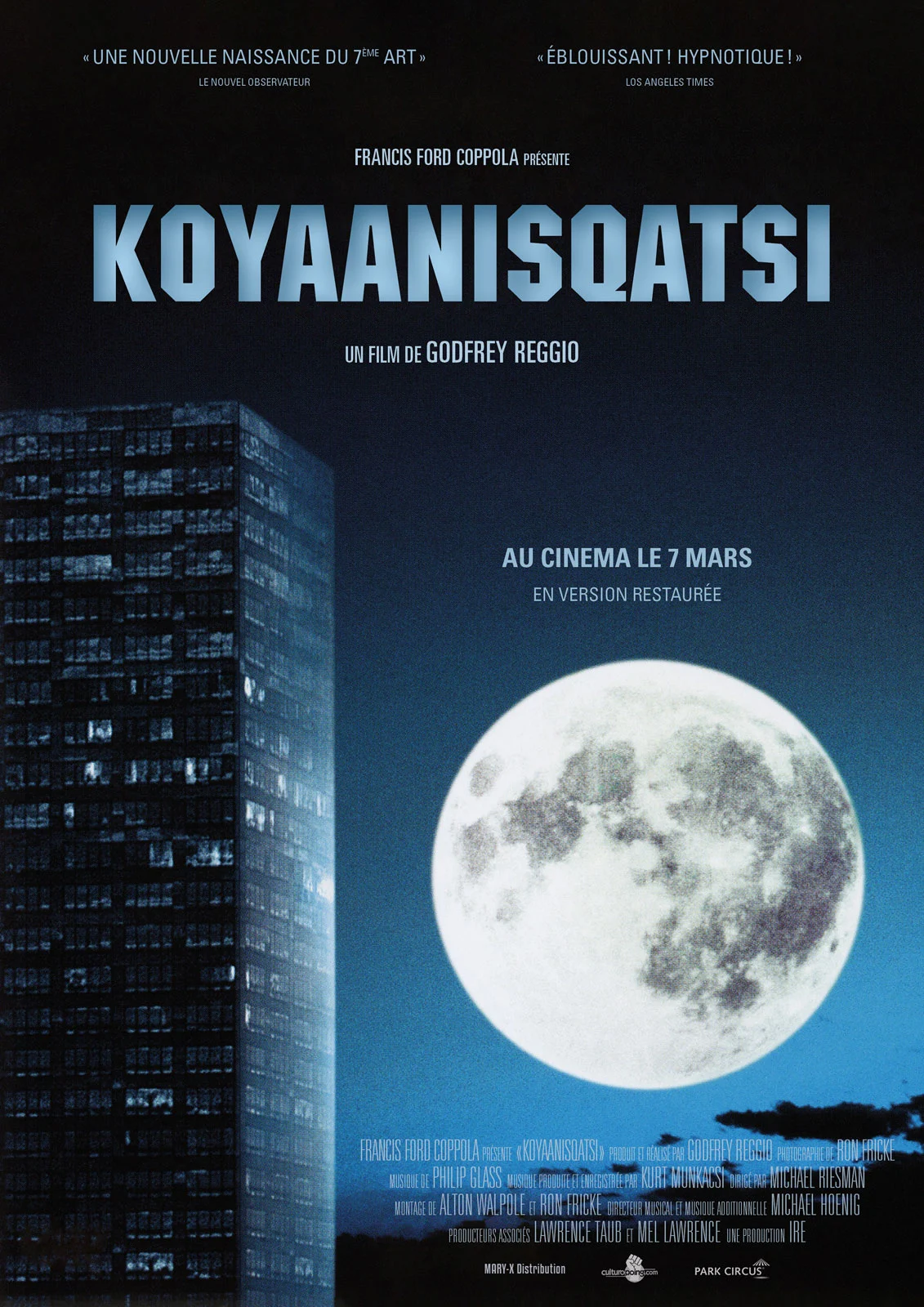
The title of Koyaanisqatsi comes from a Hopi word meaning “life out of balance,” which aptly reflects the film’s core theme. Directed by Godfrey Reggio, this experimental documentary features no dialogue but relies on powerful visuals and a hypnotic score by Philip Glass to explore the relationship between technology, industrialization, and the environment.
Through stunning time-lapse cinematography, Koyaanisqatsi contrasts natural landscapes with scenes of urban sprawl, pollution, and technological advancement. The film emphasizes how modern life disrupts ecosystems and leads to environmental degradation. The juxtaposition of untouched nature with human-made structures paints a stark picture of the impact that industrialization has on the planet.
Although not a traditional documentary, Koyaanisqatsi speaks volumes about the necessity of rethinking humanity’s relationship with the environment. It serves as a visually poetic commentary on the disconnection between technological progress and ecological sustainability, urging viewers to consider a more balanced approach to development and conservation.
Keywords: ecosystems, human impact, environmentalism, nature View on IMDb | Watch the trailer10. La Belle Verte (1996)
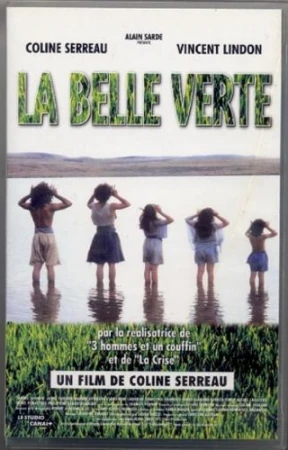
La Belle Verte is a French science-fiction comedy that presents an offbeat yet poignant critique of modern society’s disconnection from nature. Directed by Coline Serreau, the film follows Mila, an alien from an advanced civilization that lives in perfect harmony with nature, as she visits Earth to understand human life. Shocked by humanity’s consumerism, pollution, and disconnection from the environment, she offers a thought-provoking commentary on the need for ecological balance and sustainable living.
While the film uses humor and satire, it carries an underlying message about the importance of biodiversity and the dangers of losing touch with the natural world. La Belle Verte encourages viewers to reflect on their own relationship with the environment and poses the question of whether progress truly benefits humanity if it comes at the cost of ecological harmony.
Keywords: environmental consciousness, sustainability, human-nature connection, ecology View on IMDb | Watch the trailer11. Once Upon a Forest (2013)
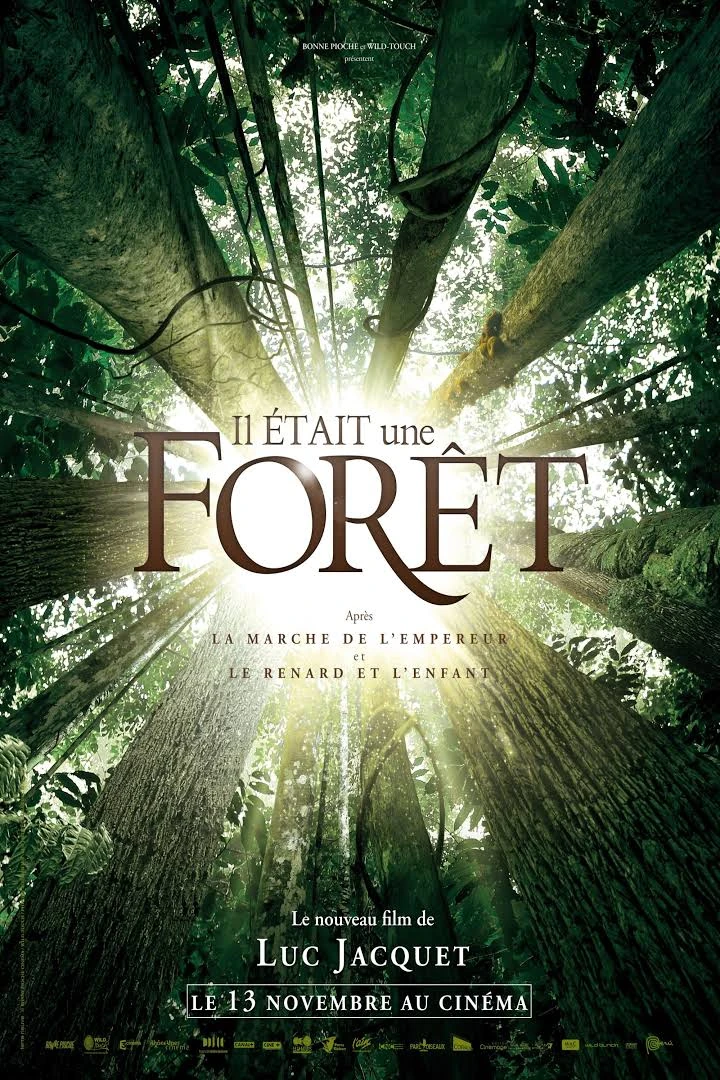
In Once Upon a Forest, director Luc Jacquet—famed for March of the Penguins—takes viewers deep into the heart of tropical rainforests, offering a visual exploration of these ecosystems and their importance to global biodiversity. The film is a tribute to the ancient forests of the world and highlights the ecological complexity and resilience of these ecosystems.
The documentary showcases how tropical forests serve as vital habitats for countless species and play a critical role in regulating the planet’s climate. It also emphasizes the interconnectedness of all life within these forests, from the smallest insects to the towering trees, and the devastating effects of deforestation on this intricate balance.
Once Upon a Forest serves as a call to action for preserving rainforests, reminding viewers that the survival of these ecosystems is essential not only for the species that inhabit them but also for the health of the planet as a whole. Through stunning visuals and insightful commentary, the film makes a compelling case for immediate and sustained conservation efforts.
Keywords: rainforests, biodiversity, conservation, tropical ecosystems View on IMDb | Watch the trailer12. Our Planet (2019)
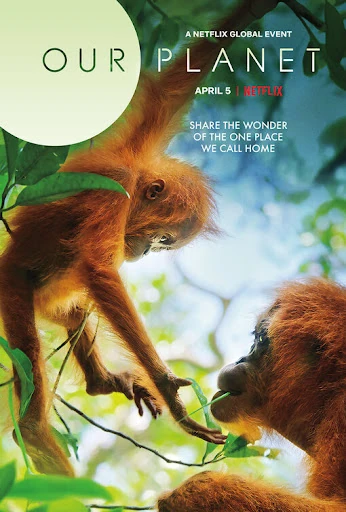
Our Planet is a landmark documentary series narrated by Sir David Attenborough, which explores the rich biodiversity of Earth, showcasing awe-inspiring footage of ecosystems from the frozen Arctic to the vibrant rainforests of South America. Through stunning visuals and compelling storytelling, the series highlights the intricate connections that sustain life across diverse habitats.
Each episode focuses on a different biome, offering a deep exploration of forests, oceans, grasslands, and more. Our Planet illustrates the delicate balance within ecosystems and emphasizes the role human activities play in disrupting this balance, leading to habitat loss and endangering species. The series encourages reflection on how conservation efforts can help restore these ecosystems, safeguarding biodiversity for future generations.
What sets Our Planet apart is its urgent message about the need for collective action to protect natural environments and preserve the species that inhabit them. It stands as both a celebration of Earth’s natural wonders and a call to action for conservation, reminding viewers of the essential role they can play in maintaining the planet’s ecosystems.
Keywords: biodiversity, conservation, ecosystems, habitat protection, sustainability View on IMDb | Watch the trailer13. Planet Earth II (2016)
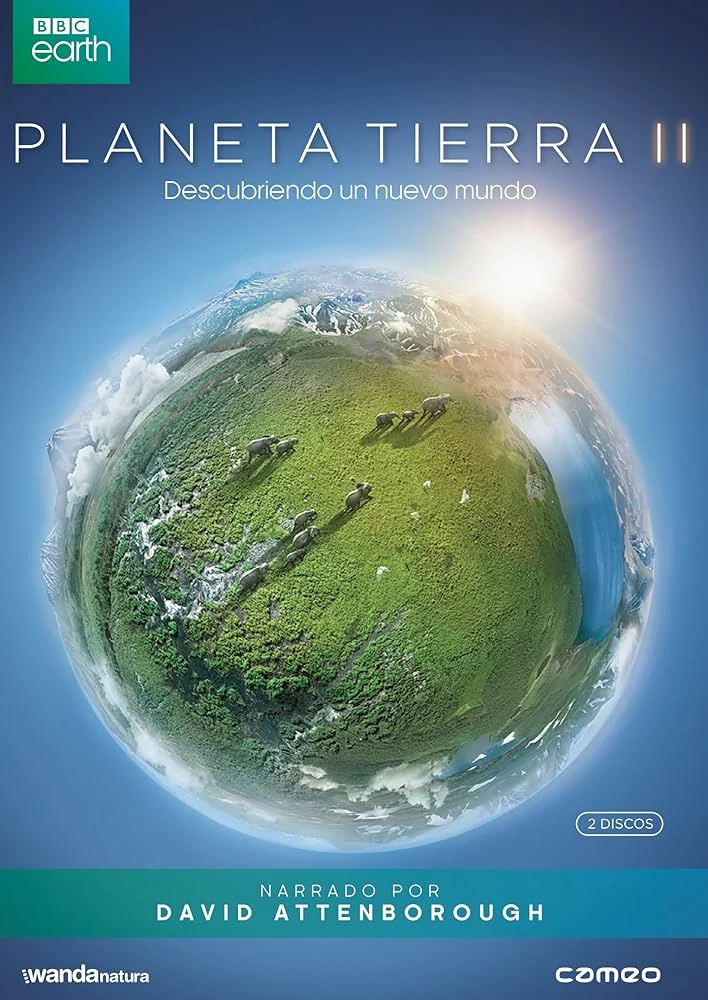
Planet Earth II, produced by the BBC Natural History Unit, is a landmark documentary series that takes viewers on a breathtaking journey through some of the world’s most diverse and remote ecosystems. Narrated by Sir David Attenborough, this series builds on the success of the original Planet Earth and offers an even more intimate look at the natural world.
The series covers a range of habitats, from tropical rainforests to deserts, mountains, and cities, highlighting the adaptability of wildlife in the face of changing environmental conditions. It also emphasizes the importance of biodiversity and the role that each species plays in maintaining ecological balance. Through cutting-edge filming techniques, Planet Earth II brings viewers closer than ever before to the animals and landscapes that define our planet.
More than just a celebration of nature, Planet Earth II is a reminder of the fragility of the ecosystems it portrays. The series urges viewers to recognize the urgent need for conservation in the face of habitat destruction, making it a powerful advocate for protecting the planet’s biodiversity.
Keywords: biodiversity, ecosystems, conservation View on IMDb | Watch the trailer14. Racing Extinction (2015)
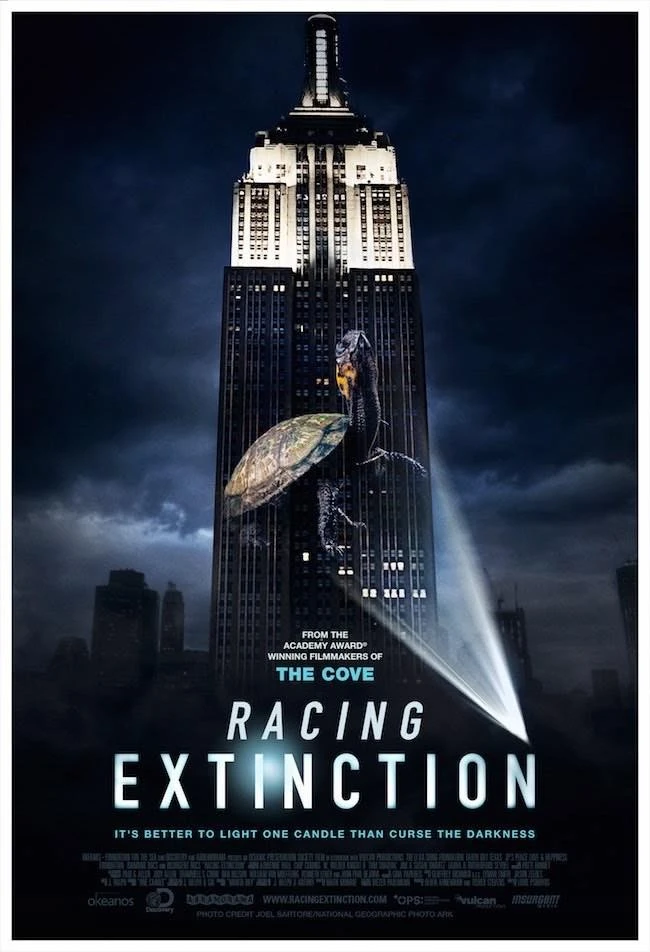
Racing Extinction is a sobering documentary that exposes the ongoing mass extinction of species caused by human activity. Directed by Louie Psihoyos, the film reveals the extent of illegal wildlife trade, habitat destruction, and the overarching threat of human action. It follows a team of activists, scientists, and filmmakers who work to uncover and combat the forces driving species to the brink of extinction.
The film combines stunning cinematography with covert operations, showing both the beauty of Earth’s biodiversity and the darkness of the industries that exploit it. It emphasizes the interconnectedness of ecosystems and highlights how the loss of even a single species can have ripple effects throughout the natural world.
At its core, Racing Extinction is a call to action, urging viewers to take responsibility for the future of the planet. It highlights the critical importance of protecting biodiversity and ecosystems and offers hope by showcasing the individuals and organizations working tirelessly to save endangered species.
Keywords: extinction, biodiversity, wildlife trade View on IMDb | Watch the trailer15. The Emerald Forest (1985)
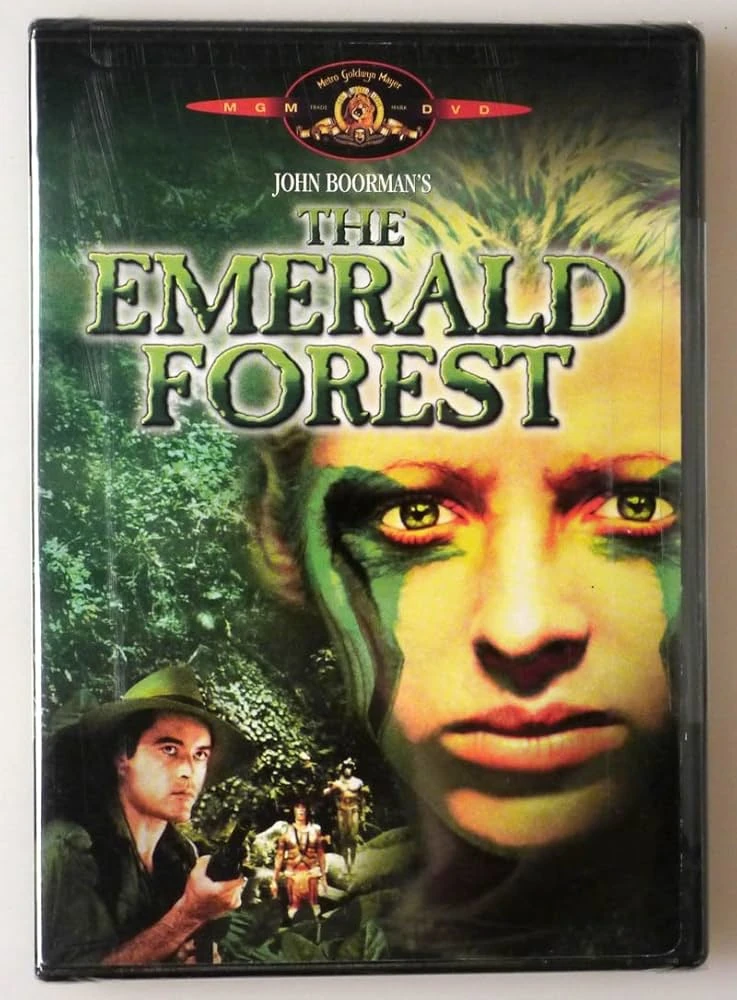
The Emerald Forest, directed by John Boorman, is an adventure drama that tells the story of a young boy abducted by an indigenous Amazonian tribe and raised in the jungle. The film highlights the stark contrast between the industrialized world and the deep connection indigenous people have with the natural environment. As the boy’s father searches for him, the film explores themes of deforestation, exploitation of natural resources, and the cultural clash between modernity and traditional ways of life.
Set in the heart of the Amazon rainforest, The Emerald Forest reflects the broader environmental issues that threaten the region’s rich biodiversity. The narrative serves as a metaphor for the ongoing battle to protect the Amazon from deforestation and industrial encroachment, underscoring the significance of indigenous knowledge in preserving these ecosystems.
This film is both an emotional family story and a powerful reminder of the environmental consequences of unchecked development. It emphasizes the importance of preserving the Amazon’s biodiversity, which is not only critical for local indigenous populations but also for the planet as a whole.
Keywords: Amazon rainforest, biodiversity, deforestation, indigenous cultures View on IMDb | Watch the trailer16. The Last Forest (2021)
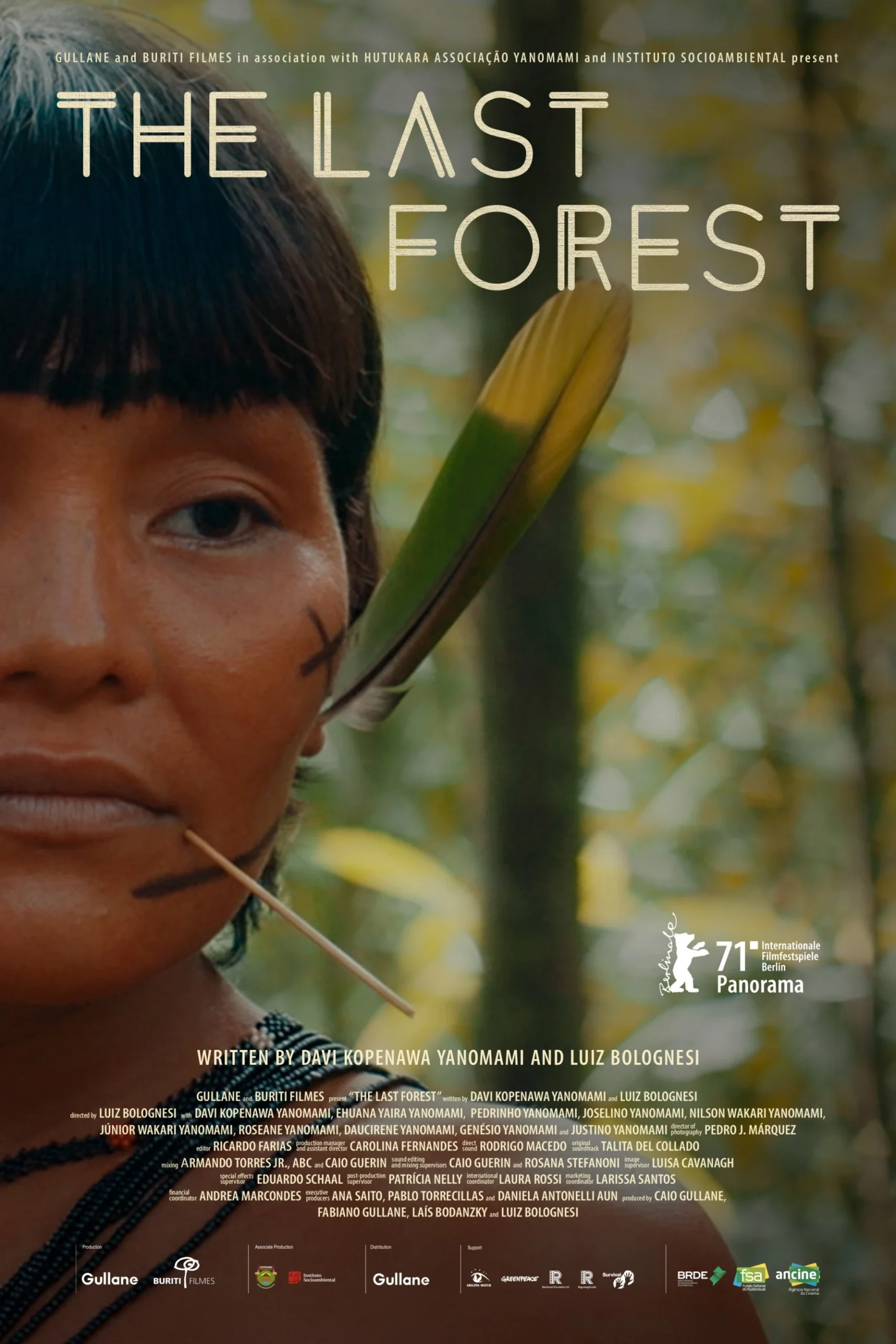
The Last Forest is a Brazilian film that tells the story of the Yanomami people and their fight to protect their land and culture in the Amazon rainforest. Directed by Luiz Bolognesi, the film focuses on the threats posed by illegal mining, deforestation, and the global loss of biodiversity.
Through the eyes of the Yanomami, The Last Forest explores the deep spiritual connection that indigenous communities have with the natural world. The film emphasizes how the destruction of the rainforest not only threatens the survival of the Yanomami people but also the biodiversity that the Amazon supports. It serves as a powerful reminder of the vital role indigenous cultures play in preserving ecosystems.
With stunning visuals and a poignant narrative, The Last Forest brings attention to the urgent need for stronger environmental protections in the Amazon. The film highlights the ongoing struggle to safeguard one of the planet’s most biodiverse regions from the forces of industrialization and exploitation.
Keywords: Amazon rainforest, biodiversity, deforestation, indigenous cultures View on IMDb | Watch the trailer17. The Salt of the Earth (2014)
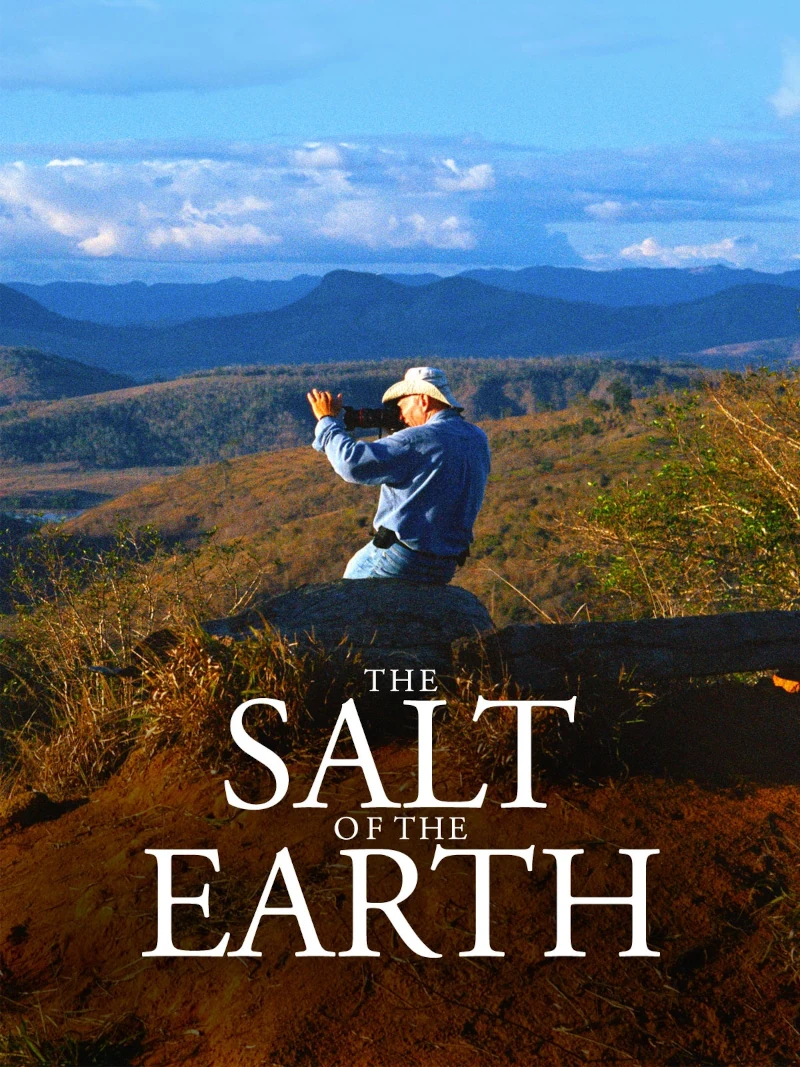
The Salt of the Earth is a biographical documentary that chronicles the life and work of Brazilian photographer Sebastião Salgado. Known for his powerful images of both human and environmental struggles, Salgado’s work spans decades and continents, capturing the impact of deforestation, environmental degradation, and the resilience of indigenous communities.
The film, co-directed by Wim Wenders and Juliano Ribeiro Salgado, brings to life Salgado’s photographic journey through remote and endangered ecosystems, from the Amazon rainforest to Africa’s deserts. It not only showcases his iconic black-and-white images but also delves into the environmental and social issues that define his body of work.
The Salt of the Earth is both a visual masterpiece and a profound commentary on the need to protect our planet’s biodiversity. Salgado’s commitment to documenting environmental degradation serves as a stark reminder of the fragility of ecosystems and the urgency of conservation efforts worldwide.
Keywords: conservation, biodiversity, deforestation, indigenous cultures View on IMDb | Watch the trailer18. Woman at War (2018)

Woman at War is an Icelandic eco-thriller that tells the story of Halla, a choir conductor who leads a secret double life as an environmental activist. As an anonymous saboteur, she disrupts the operations of an aluminum plant threatening Iceland’s highlands. Her lone acts of resistance reflect the global struggle to protect ecosystems from industrial destruction.
The film explores the lengths to which individuals will go to defend the environment, highlighting the personal sacrifices involved in activism. It also reflects on the importance of local action in the preservation of biodiversity. Halla’s fight is not just about the landscape but also about future generations and their right to inherit a healthy environment.
Woman at War is both a suspenseful narrative and a poignant reflection on the urgency of environmental protection. It showcases the power of grassroots activism in the face of corporate interests, while also raising questions about personal responsibility in the fight for ecological sustainability.
Keywords: environmental activism, biodiversity, ecosystems, Iceland View on IMDb | Watch the trailerEco-blog | Insights - Categories:
Eco-blog | Insights - Post:
Eco-blog | Insights - Tags:
Topics of Interest
AI & Ethical Dilemmas AI-driven bioinformatics AI-driven geospatial analysis AI-driven urban planning AI-powered land use planning AI and governance AI ethics AI Risks biodiversity governance bioinformatics biopiracy Biopolitics in Ecology bioprospecting blockchain blockchain for genetics Conservation Technology Data-Driven Conservation data ethics digital biopiracy digital sequences Ecological Philosophy Energy Storage epistemic plurality Ethical AI ethical concerns in geospatial analytics genetic data ownership genetic sequences geospatial AI geospatial analytics geospatial ethics Indigenous & local Rights Indigenous Knowledge Nagoya Protocol open-source geospatial data open-source GIS open-source mapping open data platforms Remote Sensing renewable energy renewable resources spatial data ethics sustainability Sustainability Challenges synthetic biology water management







Leave a Reply